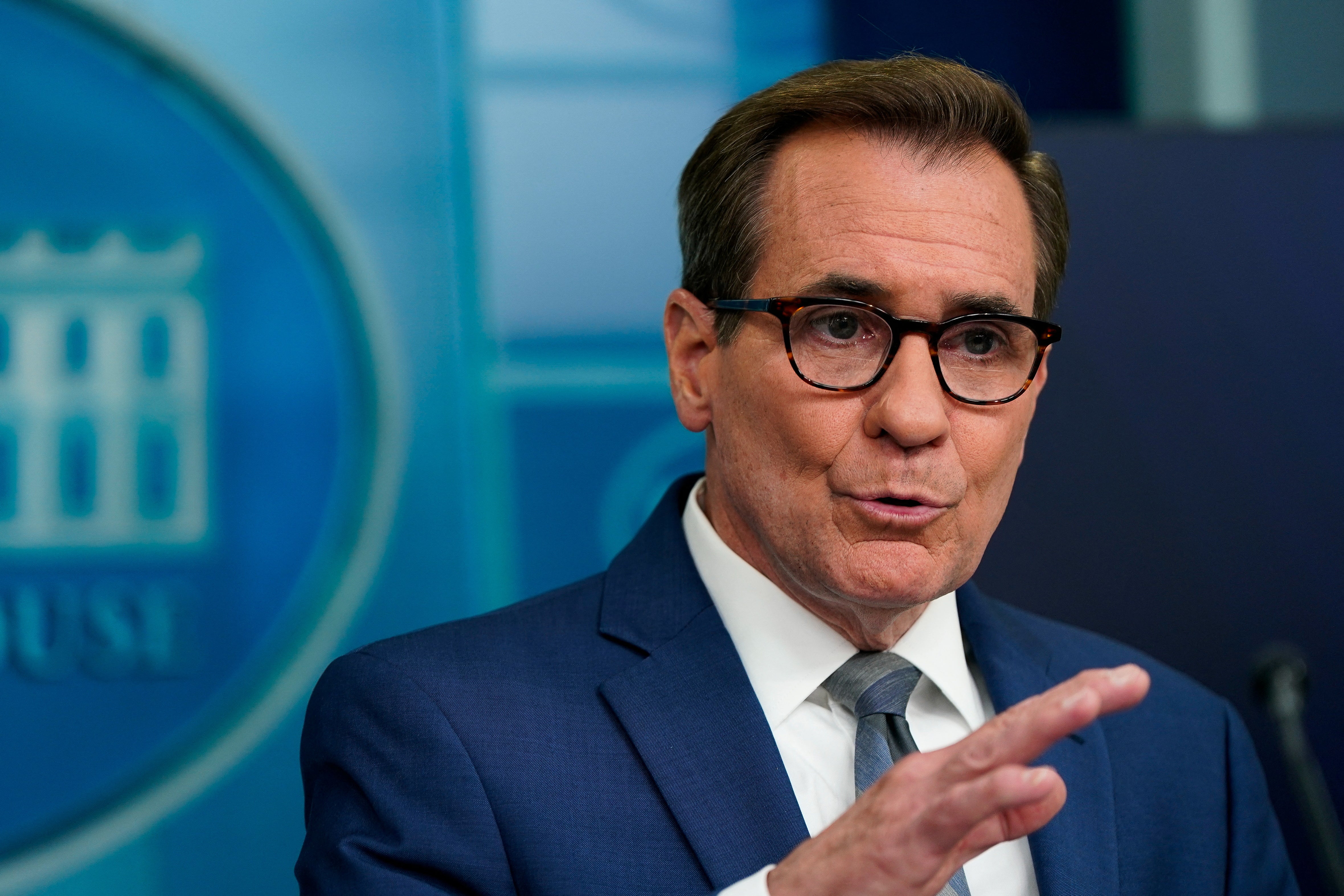White House ‘comfortable’ with its nuclear position after Nato chief suggests increase in deployed weapons
White House spokesperson John Kirby says the US are ‘comfortable’ with their current level of deterrence in Europe

Your support helps us to tell the story
From reproductive rights to climate change to Big Tech, The Independent is on the ground when the story is developing. Whether it's investigating the financials of Elon Musk's pro-Trump PAC or producing our latest documentary, 'The A Word', which shines a light on the American women fighting for reproductive rights, we know how important it is to parse out the facts from the messaging.
At such a critical moment in US history, we need reporters on the ground. Your donation allows us to keep sending journalists to speak to both sides of the story.
The Independent is trusted by Americans across the entire political spectrum. And unlike many other quality news outlets, we choose not to lock Americans out of our reporting and analysis with paywalls. We believe quality journalism should be available to everyone, paid for by those who can afford it.
Your support makes all the difference.The White House has said it is “comfortable” how its nuclear weapons are placed in the wake of comments from Nato chief Jens Stoltenberg suggesting members of Nato are considering increasing the number of nuclear weapons deployed to counter an increased threat from Russia and China.
Addressing reports at a White House Briefing, spokesperson John Kirby declared that the US are “comfortable” with their “strategic deterrent posture”.
Asked about Mr Stoltenberg’s comments, Mr Kirby said: “We don’t talk about nuclear posture with any specificity - and I’m certainly not going to start doing that here from the podium.
“I’ll just tell you that we’re comfortable as we have been comfortable with our strategic deterrent posture not only on the European continent but around the world.”
Pressed on whether such a move was provocative, he added: “Who would perceive it as a provocation or an escalation? Russia. Oh, Russia, the same country that invaded Ukraine, which posed absolutely no threat to them.” He added that “Nato is a defensive alliance.”
In an interview published by The Daily Telegraph, Mr Stoltenberg revealed that defence ministers from the bloc’s member states had discussed deploying more nuclear weapons in the face of a growing threat from Russia and China.
He said there were live consultations between members on taking missiles out of storage and placing them on standby as he called for transparency to be used as a deterrent.
“I won’t go into operational details about how many nuclear warheads should be operational and which should be stored, but we need to consult on these issues,” Mr Stoltenberg said.
“That’s exactly what we’re doing at Nato, for instance at meetings in Nato, a nuclear planning group as we had during the defence ministerial meeting this [last] week.”
The Nato secretary-general made his comments ahead of his visit to Washington on Monday. Next month, Nato hosts its annual summit in Washington.
Mr Stoltenberg said on Sunday that China’s nuclear arsenal could grow to 1,000 warheads by 2030, adding that this meant Nato was potentially facing “two nuclear-powered potential adversaries” in the “not-very-distant future”.
The Federation of American Scientists (FAS) estimates that Russia’s military stockpile consists of approximately 4,380 nuclear warheads, with 1,200 additional retired warheads awaiting dismantlement, as of March 2024.
The number of operational nuclear weapons is top secret but estimates suggest the UK has about 40 of 225 deployed at any one time. The US has about 1,700 of 3,700. France, another Nato nation with nuclear weapons, does not declare openly the extent of its arsenal.
Earlier this month, Pranay Vaddi, the top US national security council arms control official, said the world “may reach a point in the coming years where an increase from current deployed numbers is required”.
Experts suggest Mr Stoltenberg’s comments simply reflect a heightened security threat in Europe as a result of Russia’s full-scale invasion of Ukraine and its hybrid warfare activities against other European nations, including the use of cyber warfare - as opposed to an offensive threat.
Sebastian Brixey-Williams, the executive director of the Basic security think tank, told The Guardian: “I read it at this stage as a form of signalling intended to sober up Russia and China in order to try to avert an arms race. But we should not assume it is a bluff, and it may in fact make an arms race more likely.”
The Kremlin labelled the remarks by Mr Stoltenberg that the military alliance was holding talks on deploying more nuclear weapons an “escalation of tension”.
"This is nothing but another escalation of tension,” Dmitry Peskov, the Kremlin’s spokesperson, said on Monday.
However, Russia regularly resorts to claiming that Nato and Ukraine’s western allies are escalating tensions, often when they merely respond to Russian aggression.
Join our commenting forum
Join thought-provoking conversations, follow other Independent readers and see their replies
Comments